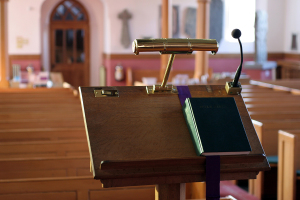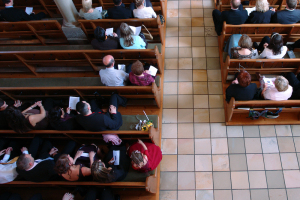If God Exists, Then Why Is There Suffering?

We only have to turn on the news for a few seconds to see lives torn apart by suffering. This week alone we have seen children trapped in a burning shopping mall in Russia, texting final messages to their families. We are seeing millions displaced and thousands ravaged and killed in the Democratic Republic of Congo as violence escalates once again. On our own doorstep, the situation is no different. Everything from traffic accidents to suicides to illness to cyber-bullying are commonplace.
Our very natural response is to ask, 'Why?' 'Why do these things happen?' But to whom are you addressing the question? Do you know? Does it matter?
The late Christopher Hitchens was interviewed in 2011 about his diagnosis of terminal Oesophageal cancer. He was asked whether he had been tempted to ask the question: 'Why me?'. He responded in this way:
'You can't avoid the question, however stoic you are. You can only bat it away as a silly one. Millions of people die every day. Everyone's got to go sometime.'
In other words, if God does not exist, there is no point asking why, because there is no-one to ask. This is simply the way the world is.
But if this is simply the way the world is, how do we make sense of our outrage at the things people do to each other? Suffering creates an awareness that there is something wrong with the world. The Christian faith uniquely makes sense of this. Good is defined by God; Evil also exists because Satan exists. At certain times in history and in certain places of the world today, evil is allowed to reign unchecked, creating havoc along the way.
People are, of course, far from blameless. We are free to choose the extent to which we will allow evil to reign in societies, neighbourhoods and in each human heart. But, our anger at evil and suffering points us towards God, not away. We instinctively ask 'Why?' because God exists.
If God exists does he care about MY suffering?
When going through difficult times we prefer to be around people who have suffered similarly. A shared experience of suffering can be comforting when words are insufficient. What is God's response to my suffering? Where is he when I suffer?
I am reminded of John Humphrys' conversation with Rev. Giles Fraser earlier this year in which he voiced the question, 'Where was God in Auschwitz?' Elie Wiesel, a Hungarian Jew, tells a story from this very death camp in which he was incarcerated. A young boy was sentenced to death by hanging, but was too light to die instantly and 'hovered between life and death' for 30 minutes in agony. A man behind Wiesel asked, 'For God's sake, where is God?'. Wiesel heard a voice within him reply,
'Where is he? This is where – hanging here from this gallows....'
The God Christians believe in has not left us alone in our suffering but has come close to us in the person of Jesus Christ. The prophet Isaiah described him as, '... a man of suffering and familiar with pain' [53:3]. But more than suffer like us, God has also suffered for us. Isaiah goes on to say that, '...he was pierced for our transgressions, he was crushed for our iniquities; the punishment that brought us peace was on him, and by his wounds we are healed' [53:5].
Jesus took evil into his very core on the cross, in order to defeat it once and for all, so that, whatever evils may come to us, we need never endure them alone. If God exists there is hope. There is strength we never thought we had. God does not always offer us answers, but he offers us himself. He offers us forgiveness for the past, comfort in the present, and hope for the future. Will you choose him this Easter?




























